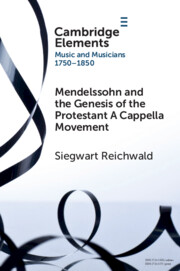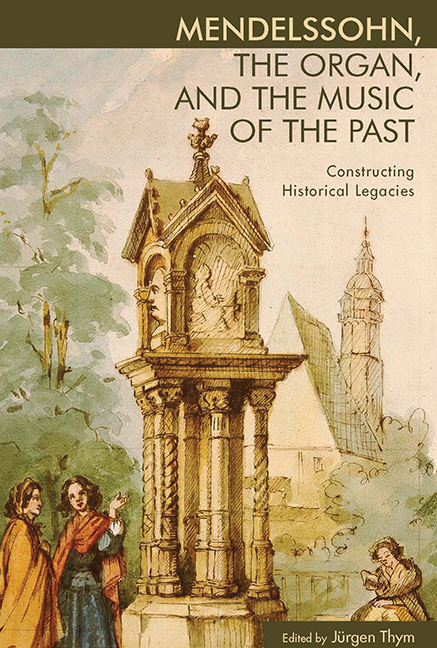“Mendelssohn is one of those open characters you don't often find; he believes firmly in his Lutheran religion, and several times I've seriously shocked him laughing at the Bible.”1 Berlioz seems to have stated the obvious about Mendelssohn's Lutheran faith. From his performance of the St. Matthew Passion and his countless remarks about the greatness of Bach's music to Mendelssohn's many chorale settings and Bach's obvious influence on St. Paul (MWV A14, op. 36), it seems a foregone conclusion that Mendelssohn was a Lutheran composer. Things are, however, never as simple as they seem. Consider, for example, that Mendelssohn's first published sacred works are his opus 23 (MWV B19–21), a diverse collection that includes an Ave Maria; in his second publication are three Latin motets (MWV B23, B24, and B30, op. 39), dedicated to the nuns at Trinità dei Monti. His first published large-scale sacred work is Psalm 115 “Non nobis Domine”/”Nicht unserm Namen, Herr” (MWV A9, op. 31), a work conceived in Latin and only later translated into German. At the end of his career, when Mendelssohn worked on Elijah (MWV A25, op. 70), he composed concurrently his largest Catholic composition, Lauda Sion (MWV A24).
A look at works published during Mendelssohn's lifetime presents an even more surprising picture. Mendelssohn decided to publish only nine (ten in England) of his sixty smaller sacred works: Kirchen-Musik für Chor, op. 23 (1832); Drei Motetten für weibliche Stimmen mit Begleitung der Orgel, op. 39 (MWV B24, B30, B23, 1838); and Drei Motetten, op. 69, consisting of Jubilate (MWV B58), joined by a Te Deum for the Morning Service (MWV B25, 1847), and Magnificat et Nunc dimittis (MWV B59–60, 1847). Of the nine published smaller works, seven have Latin texts and six are intricately connected to his Italian experience. Underscoring the importance of his Grand Tour of 1829–31 is Mendelssohn's decision not to publish any of his eighteen smaller choral works composed before this trip to Italy, thereby making his “Italian” opuses 23 and 39 the only public offerings of sacred motets for almost his entire career— until the publication of his opus 69 motets in 1847, composed initially for the Anglican Church.

